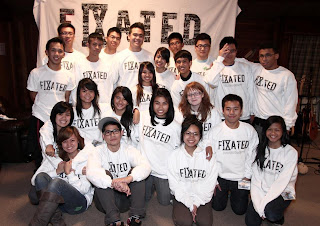I am thankful for everything in my life, but if there’s anything I’m especially grateful for, it’s the amazing people God chooses to walk with me. You guys not only make the hard days bearable, but remind me why every day is spectacular.
Sometimes there are things you get for free.
Those things for which you never ask, for which require no particular task,
Things that solicit nothing more of your soul than but to breathe,
But to live;
To simply be.
And with each gasp of air, you receive. Abundantly.
Sometimes there are things you can’t explain.
The way your heart eased, absolved from all pain,
Fragile and hurt, yet you only felt gain. The peace in the clamour,
Amidst the glitz and the glamour, a voice,
Saying nothing,
And is just there. And the presence is deafening.
Sometimes there are things that make you smile all the time.
Loss of words, loss of rhyme, the moments when for once you’re not in a hurry,
When you finally comprehend that every single one of your worries,
Has led you here. To learn, to share, to grow,
To yearn, with passion, for the whole world to know,
That you are happy. Just really happy.
Sometimes there are things of which you have to let go.
Like that thing called pride that takes you farthest from home,
So to wait at the crossroad for a yes or a no, patience thin as a glass,
Transparent, exposed. To be truth, to be light, to be wisdom, to be hope,
Abandoning all that you reserve on the premise not promised
That someday they’ll be thankful, faithful, stronger.
Not because of you, but because of our Father.
Sometimes there are things called limits.
Time, distance, this place, that place,
That space without contact, without exchange
Of thoughts, sentiments, ideas, something strange,
Because sometimes we get busy, sometimes things get in the way.
But there’s a thing called friendship,
And I think I got it for free,
And words fail and fall short as a tale
And as a sufficient portrayal of how much it has brought me and taught me to be.
Ridden from selfishness, pride, impatience, fear,
So to nurture others in cherishing their own souls as dear.
The world places limits,
But love never ends.
So thank you guys for your love,
And for being my best friends.




